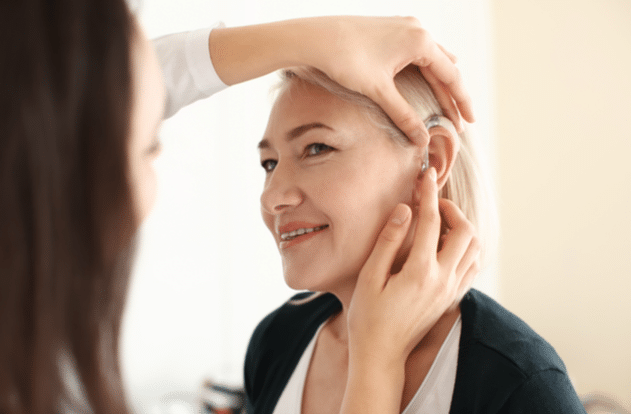
With age may come wisdom, but it also usually means some degree of hearing loss. It’s estimated by the CDC that roughly half of the US. population over 65 has some amount of hearing loss.
But you don’t have to be a senior citizen to have hearing loss. Playing music too loud in your ear buds day after day will do it. So will working at a job or hobby that involves continuous loud noise.
Dr. Volpi helps patients from across the city dealing with hearing loss at New York ENT.
How Does Hearing Happen?
Our ears are made up of the outer, middle, and inner ears. The three sections work in harmony to bring in sound and make sense of it. Sound waves enter the outer ear. This causes the eardrum to vibrate. The eardrum and three small bones in the middle ear section amplify these vibrations as they move further into the ear canal. In the inner ear, the vibrations pass through fluid in the cochlea. This odd-looking part of the ear resembles a snail’s shell. The cochlea has numerous nerve cells. Attached to these cells are thousands of tiny hairs. These hairs help to translate the sound vibrations into electrical signals. These electrical signals are then sent to the brain, where they are interpreted as sound.
Hearing Loss
Hearing loss can occur through different causes. One simple and easily fixable cause is a buildup of ear wax in the ear canal. This can block or muffle sound. Dr. Volpi can easily remove this wax to restore hearing.
Other damage is permanent. Aging and exposure to loud noise cause the hair responsible for translating sound to become damaged or to go away. Nerve cells can do the same. Without as many hairs and nerve cells, the electrical signals are not transmitted as efficiently as in a person’s younger years or before their exposure to the loud noise.
Often higher pitched tones are the first area of hearing loss. This makes it much more difficult for the person to hear when other background noise is present, such as trying to hear a person talking to you at a party.
Ear infections, tumors, bone growths, and ruptured eardrums also contribute to hearing loss.
If you wonder what has happened to the quality of your hearing, call Dr. Volpi at New York ENT, (212) 873-6036, and let’s check out your hearing.



